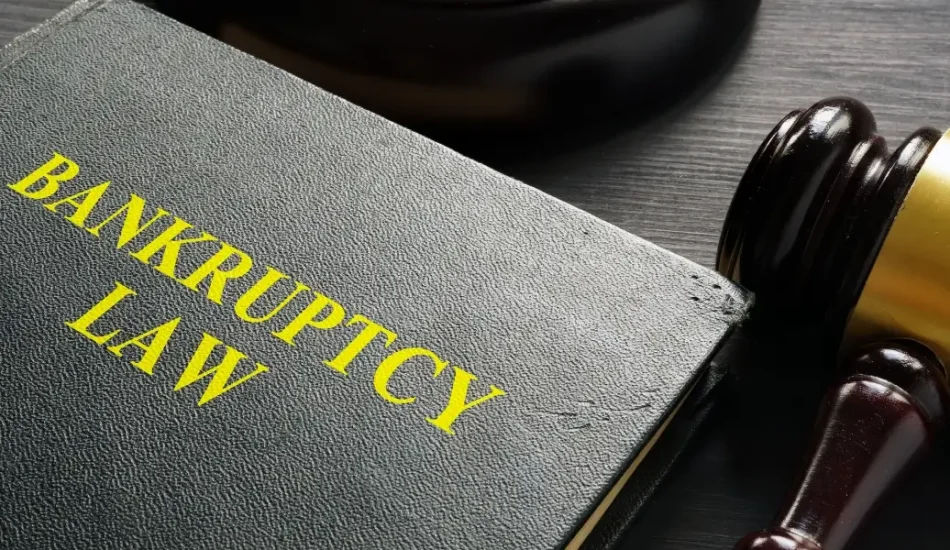|
Last Modified on Apr 27, 2025
Struggling with your finances and feeling buried in debt is a common problem for many people. Consider familiarizing yourself with Connecticut bankruptcy laws and speaking with a debt-relief professional if you’re looking for ways to resolve your financial circumstances.
Understanding Types of Bankruptcy in CT
In Connecticut, bankruptcy is a legal tool that allows you to get a fresh start on your finances when you’re no longer able to make payments on your owed debts. Most people understand what it’s like to face sudden life events or unfortunate circumstances, such as a divorce, career setbacks, or health problems. However, when these unexpected events leave you in debt and struggling to find a way out, it may be time to consider your financial options.
Bankruptcy works by filing a petition with the bankruptcy courts, ideally with the help of an experienced bankruptcy lawyer, such as Attorney Tim Pletter. These are the most common forms of bankruptcy you’re likely to encounter as an individual or business owner:
- Chapter 7: Also referred to as liquidation bankruptcy, this involves liquidating your non-exempt assets to resolve most forms of unsecured debts. Non-exempt assets include stocks, bonds, and other property or valuables that are not essential for daily living.
- Chapter 13. For anyone who doesn’t qualify for a Chapter 7 bankruptcy, a Chapter 13 filing may be a more practical option. Under this form of bankruptcy, which is also called a reorganization or “wage earners” bankruptcy, you restructure your debts through a proposed repayment plan. This process generally lasts from three to five years.
- Chapter 11. This type of bankruptcy is frequently used by businesses, but it may also be an option for some individuals with a significant amount of debt. Under Chapter 11 bankruptcy, you can enact several strategies to reorganize your finances and repay delinquent debts. This can include selling assets, renegotiating contracts, and downsizing.
Qualifying for Bankruptcy in Connecticut
If you’re wondering whether you may even be eligible for bankruptcy, there’s a standard way to find out, known as the “means test.” This involves assessing the monthly income of your household and comparing it to the median income for a family of your size in Connecticut. You automatically qualify for Chapter 7 bankruptcy if your household’s monthly income is below the median.
If your family’s combined monthly income is above this median threshold, then you must determine how much money you have left every month, after deducting necessary expenses, to see whether you qualify for Chapter 13. Necessary deductions include the cost of living according to national standards, your secured debts, and priority debt payments. You qualify for a Chapter 13 repayment plan if you have at least 25% of your monthly income left over.
Where Are Bankruptcy Cases Handled in CT?
In Connecticut, of the 2,900 bankruptcy filings that were reported in 2023, approximately 2,315 of those cases were for Chapter 7 bankruptcy. That same year, 567 Chapter 13 filings and 18 Chapter 11 filings were reported across the state. Bankruptcy matters in Connecticut are processed by the United States Bankruptcy Court. In the District of Connecticut, one of several offices may oversee your case, depending on where you live.
For example, the Bridgeport divisional office has jurisdiction over bankruptcy filings for cities within Fairfield County, such as Bridgeport, Shelton, and Stratford. This office is located at the Brien McMahon Federal Building at 915 Lafayette Boulevard, Bridgeport, CT 06604. For cases within New Haven County, such as Milford, bankruptcy filings will be processed at the Connecticut Financial Center, located at 157 Church Street, 18th Floor, New Haven, CT 06510.
FAQs
A: The main appeal of bankruptcy for many people is that you can find a solution to various debts that are bringing you stress and hardship. However, there are numerous other benefits to filing for bankruptcy, or reasons why you might want to do so in the first place. These include:
- Stopping a foreclosure or removing a lien on your home
- Preventing further harassment from creditors
- Reduced interest rates on your unsecured debts
- Halting car repossession and garnishments on wages
A: Working with a lawyer throughout your bankruptcy case is an essential resource you should capitalize on. Perhaps most importantly, it’s highly advised that you entrust a professional with your bankruptcy, as opposed to trying to file on your own.
Bankruptcy law is complex, and even a minor error can cause significant damage to your situation. Your attorney is also there to guide you throughout the process, being sure to provide insightful counsel and advice from their years of legal practice.
A: In Connecticut, you find out if you qualify for bankruptcy through the “means test,” starting by looking at your household’s monthly income. If it’s lower than the state median for your family size, you qualify for Chapter 7. If your household’s monthly income is higher than the state median, you then calculate how much money you have left over after deducting necessities. If you have enough to pay at least a fourth of your unsecured debts, you qualify for Chapter 13.
A: In Connecticut, certain properties are exempt from bankruptcy, particularly within a liquidation bankruptcy. This means that exempt assets are safe from being liquidated to repay your debts. Exempt properties generally include the primary family home, your main vehicle, furniture, and other essential items. You can consult a seasoned bankruptcy attorney to learn more about which of your assets may be exempt.
Ambrogio, Pletter & Associates, LLC: Providing Vital Bankruptcy Guidance for Our Clients
At Ambrogio, Pletter & Associates, LLC, we find practical solutions to your unique problems. With the help of Attorney Tim Pletter, we will work tirelessly to find a debt-relief option that is most effective for your situation. Contact us today to schedule a meeting where you can discuss your situation with a seasoned bankruptcy lawyer.



